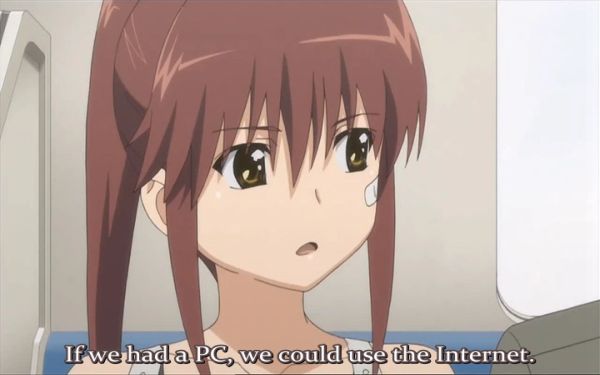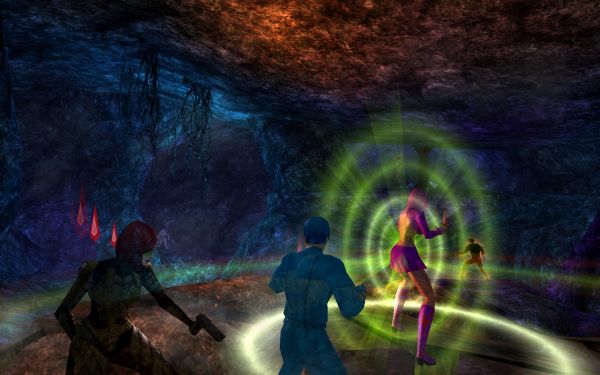Computers, computers everywhere, but not a drop of broadband! Or rather, drop may be what it did.
One of the things I first thought about when the house was sold, was broadband access. I had fiber-optic high-speed access. Kind of overkill, but the price was only marginally higher than the slower telephone  cable broadband, except for an initial investment of around $1000, which I found acceptable given that I was renting the place for five years. That cost would happen again if I chose the same solution (it covers stretching fiber-optic cable to the house, while virtually every house older than 10 years has copper cable already).  I can’t keep stretching optical fibers from house to house every year.
So I looked at DSL suppliers, and decided to go back to NextGenTel (a Scandinavian-only ISP), which I had used for several years until I moved to Riverview. The other realistic supplier was the former state monopoly Telenor, which I used before switching to NextGenTel.
I quit Telenor because of their incompetence. On several occasions I was without Internet connection for a week or two, and calling them just resulted in their helpdesk making up some random story to explain, a story which would depend entirely on who I met when I called. The next day someone else would give another story. An engineer would be there tomorrow. No, it was just a temporary glitch. No, they would get an engineer to look at it. Etc, until I happened on one of the few people who actually knew anything, and who could throw a switch to get my Internet back on.
In all fairness, Telenor is OK as long as everything works. I have them for my mobile phone, at least for the time being.
I ordered DSL from NextGenTel when I was sure I was actually going to move to Mandal. To be honest, I did look for houses in the countryside for a while. If my foot had been OK, I might even have gone for the one that was a 45 minute walk from the bus. (Once the move was imminent, my foot started healing rapidly. Another suspicious coincidence.)
Yesterday I got mail from NextGenTel that they would deliver my broadband on September 20th. That is a bit later than the 2-3 weeks their web site advertises and that is specifically mentioned during summer. Â Evidently they had forgotten that their workers have summer vacation or something. I called their customer service which verified the mail. They also pointed out that this was the same for the competition, and I am pretty sure it is. For certain values of competition.
I could get ICE.NET wireless broadband in a couple days, and this is probably true because 1) I have had them before and they delivered fast, they just were horribly slow to stop when I tried to end my subscription, and 2) there is no local driving involved, they just send a wireless modem in the mail. Actually I still have their wireless modem and am testing it right now.
Or I could just continue to use my mobile phone as wireless broadband. It does have a flat rate subscription, and unless they have changed policies without me noticing, the only result of “overdraft” is that the download speed is lowered. I am not absolutely sure of this though, and it would be pretty dramatic for someone in the zeroth world to lose data access on the mobile phone!
About that: I whined on Google+ about the 10 week delivery time on broadband, and was met with absolute icy silence instead of the expected shock and outrage over the cruel and unusual treatment. Could it possibly be that this kind of customer “service” is common down in the first world? Do you still have regional monopolies and stuff? Up here in the zeroth world, every day without broadband is like a day in the Dark Ages. It is just unnatural for a modern human to not be able to videoconference, watch movies almost immediately, and play elaborate multiplayer online games while talking on some kind of IP phone. The death of distance is more or less a part of history for us, which is why being without broadband is so unthinkable.
I may end up getting the ICE.NET wireless broadband to supplement the mobile phone. Between them they should provide me with all the bandwidth I may need during July, August and Septembet. There is as usual a 12 month minimum duration, but the first six months are half price, which is quite reasonable indeed. If that applies also for former customers, I may opt for it.
At least if I have to move again (or find a nice house way out in the countryside), ICE.NET uses a frequency that covers a much larger area per base station than mobile phones, so there is hardly any habitable place in Scandinavia that is not covered. I can bring it with me anywhere there is some source of electricity, basically, with no downtime. That may turn out to be a valuable trait if I keep getting chased from place to place with little time to prepare.
I mean, it is not like you folks want to be without my updates even for a day, right? Â Right?









